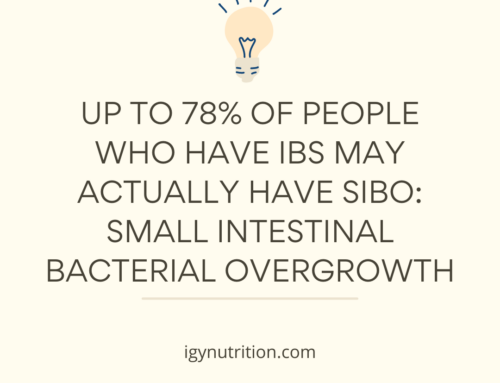Ever wonder what happens when we get sick? Of course, we all know some sort of germ invades our body and makes us feel like crap.
But what exactly is going on underneath the skin? And what does it have to do with gut health? Let’s take a look.
Immune Cells
When an invader enters the body, our immune system becomes activated.
That means our immune cells go to work on handling the invasion by killing and removing the invaders.
The gut is one of the most accessible entrances to the body for invaders. Think about it – we’re putting germ-covered foods and items in our mouths all of the time.
Consejos de seguridad para jugar en casinos online en Chile
En la actualidad, los casinos online se han convertido en una forma popular de entretenimiento para muchas personas en Chile. Sin embargo, es importante tener en cuenta algunas medidas de seguridad para garantizar una experiencia de juego segura y proteger nuestros datos personales y financieros.
En este artículo, te proporcionaremos algunos consejos de seguridad que debes tener en cuenta al jugar en casinos online en Chile. Sigue leyendo para conocer más y disfrutar de tus juegos favoritos con tranquilidad.
1. Elija casinos online confiables
Cuando decides jugar en un casino online en Chile, es fundamental elegir una plataforma confiable y segura. Antes de registrarte en un casino, asegúrate de investigar sobre su reputación y credibilidad. Busca reseñas y opiniones de otros jugadores para tener una idea de la calidad y confiabilidad del casino.
Además, verifica si el casino tiene licencia y está regulado por una autoridad de juego reconocida. Esto garantizará que el casino cumpla con los estándares de seguridad y protección de los jugadores.
2. Protege tus datos personales
Al registrarte en un casino online, es probable que debas proporcionar cierta información personal, como tu nombre, dirección y número de teléfono. Es importante proteger esta información y asegurarte de que el casino tenga medidas de seguridad adecuadas para proteger tus datos.
Asegúrate de que el casino utilice tecnología de encriptación SSL para proteger la información que compartes en su sitio web. Esto garantizará que tus datos estén protegidos contra posibles ataques cibernéticos y robos de identidad.
Esperamos que estos consejos te ayuden a disfrutar de una experiencia de juego segura y protegida. ¡leer artículo!
3. Utiliza contraseñas seguras
Al crear una cuenta en un casino online, es crucial utilizar contraseñas seguras. Evita utilizar contraseñas obvias o fáciles de adivinar, como tu fecha de nacimiento o el nombre de tu mascota. En su lugar, crea contraseñas únicas que contengan una combinación de letras, números y caracteres especiales.
Además, es recomendable cambiar tu contraseña regularmente para mantener tu cuenta segura. Evita utilizar la misma contraseña en varios sitios web y nunca compartas tu contraseña con nadie.
4. Ten cuidado con los correos electrónicos y enlaces sospechosos
Los estafadores a menudo intentan engañar a los jugadores de casinos online a través de correos electrónicos o enlaces sospechosos. Nunca hagas clic en enlaces que parezcan sospechosos o provengan de fuentes no confiables.
Si recibes un correo electrónico sospechoso de un casino online, evita proporcionar información personal o financiera a través de ese correo electrónico. En su lugar, accede al sitio web del casino directamente a través de tu navegador y comunícate con el servicio al cliente para verificar la autenticidad del correo electrónico.
5. Gestiona tu bankroll de manera responsable
Es importante gestionar tu bankroll de manera responsable al jugar en casinos online. Establece un límite de gasto y nunca juegues con dinero que no puedas permitirte perder. El juego debe ser visto como una forma de entretenimiento y no como una forma de ganar dinero rápido.
Además, evita perseguir tus pérdidas y nunca juegues bajo la influencia del alcohol o las drogas. Mantén un control sobre tus hábitos de juego y busca ayuda si sientes que estás perdiendo el control.
En resumen, jugar en casinos online en Chile puede ser una experiencia divertida y emocionante si se toman las precauciones de seguridad adecuadas. Elije casinos confiables, protege tus datos personales, utiliza contraseñas seguras, ten cuidado con los correos electrónicos y enlaces sospechosos, y gestiona tu bankroll de manera responsable.
Recuerda que la seguridad siempre debe ser una prioridad al jugar en línea. Siempre lee los términos y condiciones del casino y no dudes en contactar al servicio al cliente si tienes alguna pregunta o inquietud.
When was the last time you replaced your toothbrush? What about thoroughly washing your fruit? Yeah… we thought so.
That’s why immune cells are concentrated in the gut – germs are entering the digestive system 24/7.
The tricky part for immune cells is identifying invaders. They must be able to tell the difference between a healthy cell and a pathogen. Even tougher is differentiating between helpful and harmful bacteria living in the microbiome.
So how do they “learn” which microbes are dangerous and which are not? This identification process is where gut health comes into play.
Identifying Invaders
We have several types of immune cells in the body, but one type is particularly crucial for gut immunity: B cells. B cells create antibodies and deploy them in the intestines.
Quick reminder: antibodies are proteins that bind to and kill their target. You can think of them like bullets that only work against enemies.
Each B cell identifies the enemy, manufactures a bullet (antibody), and pulls the trigger.
B cells’ antibodies also act as signals to other immune cells; other immune cells migrate to the site to help out. This process allows for other immune cells to “learn” which bacteria are harmful.
So B cells are the star of the show. Without them, pathogenic bacteria reign (relatively) free. We must protect them at all costs!
Missing B Cells
B cells are precious to our gut health, and anything that harms them dampens our immune response and propels dysbiosis.
Irregular motility (like diarrhea), overuse of antibiotics, and some autoimmune diseases decrease beneficial bacteria and the number of B cells in the gut.
Without beneficial bacteria as competition or B cells as security guards, harmful bacteria have much higher odds of taking over the gut microbiome.
Supplements like bovine colostrum, probiotics, and IgY Max may help regulate our gut immune system. Consult your healthcare practitioner for the appropriate protocol for you.
A healthy gut microbiome fosters a healthy immune response. Tag us in your digestive health journey @igynutrition on Instagram! Happy mixing.




